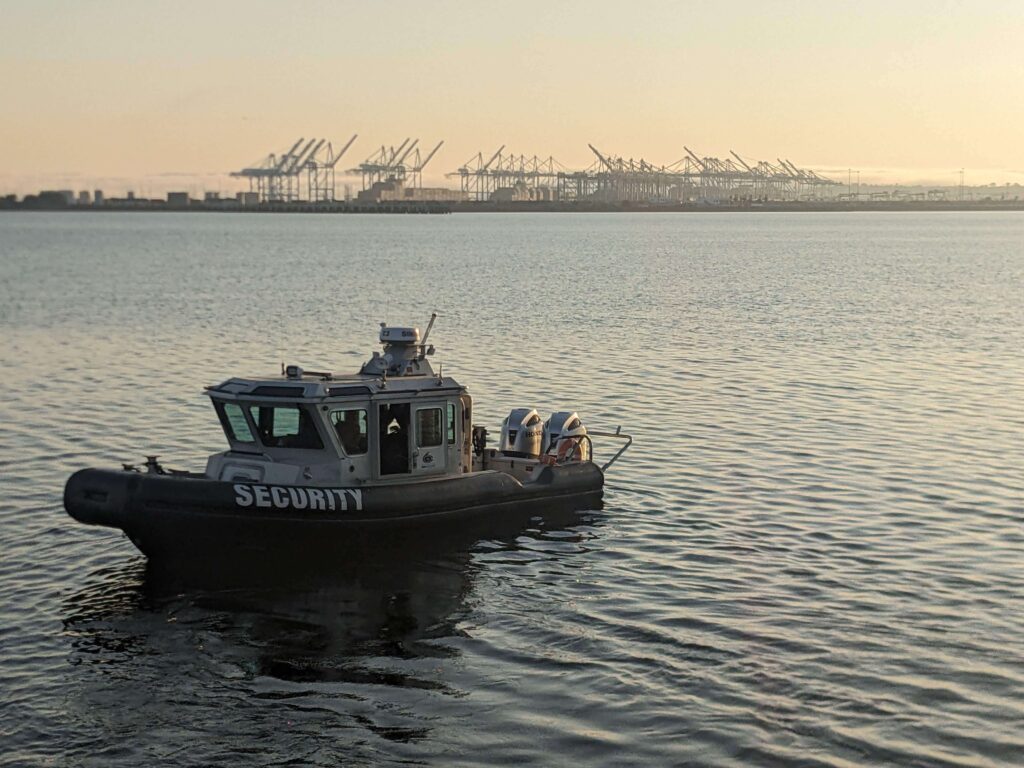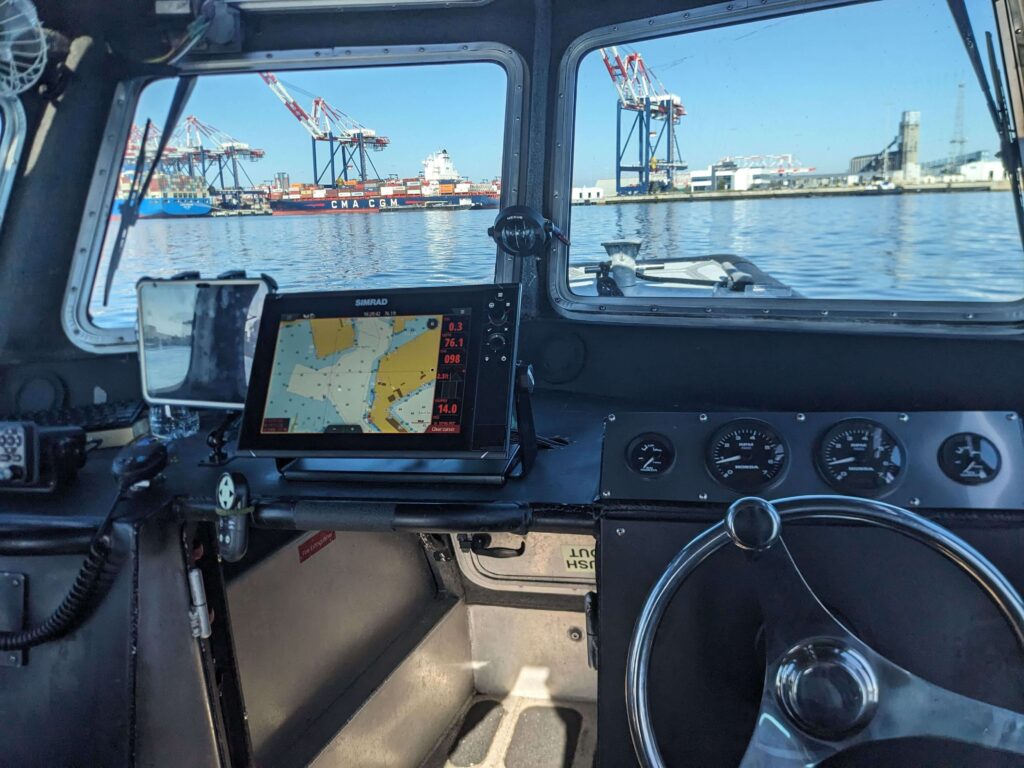
In today’s interconnected world, ports are the backbone of global trade, enabling the movement of goods, energy, and essential resources across international waters. They are critical hubs that drive economic growth and connect nations. However, as maritime commerce continues to expand, ports face an increasing array of security challenges. From terrorism to cyberattacks, the growing threat landscape makes it clear that port security is more important than ever before. We will break down the key challenges facing port security and explore why collaboration between public agencies and private security providers is essential for ensuring safe and efficient trade.
The Growing Threat Landscape
Ports are complex ecosystems that are vital to global commerce, but they are also highly vulnerable to a wide range of security threats. These threats are evolving as technology advances and geopolitical tensions rise, making it crucial to address them proactively. Here are some of the key risks facing ports today:
Terrorism and Sabotage: Ports are often viewed as strategic targets by groups seeking to disrupt trade or military operations. A successful attack on a major port could cripple supply chains, cause significant economic damage, and put lives at risk. The sheer scale of port infrastructure and the volume of goods they handle make them attractive targets for those looking to create widespread disruption.
Smuggling and Trafficking: Ports are frequently exploited by criminal networks to smuggle illegal goods, weapons, and even human trafficking victims. Weak security measures can allow these activities to go undetected, fueling organized crime and exacerbating global challenges such as drug trafficking and modern slavery. Strengthening port security is essential to curbing these illicit activities and protecting vulnerable populations.
Cyber Threats: As ports modernize and adopt digital infrastructure to enhance efficiency, they become increasingly susceptible to cyberattacks. Hackers can target port management systems, shipping schedules, and cargo data to disrupt operations, steal sensitive information, or demand ransoms. A cyberattack on a major port could have cascading effects on global trade, highlighting the urgent need for robust cybersecurity measures.
Unmanned Threats: The rise of drones and autonomous maritime systems presents new security challenges for ports. Drones can be used for surveillance, smuggling, or even carrying out attacks, while unmanned underwater vehicles (UUVs) can infiltrate restricted areas. These threats require advanced detection and countermeasure systems to ensure they do not compromise port security.
Why Private Security is Critical
Given the complexity and scale of the threats facing ports, traditional security measures alone are no longer sufficient. Public agencies tasked with overseeing port security often face resource constraints and competing priorities, making it difficult to address every aspect of the threat landscape. This is where private security services come into play. Private maritime security companies provide specialized expertise and resources that complement government efforts, making ports more resilient to evolving threats. Here’s how private security contributes to port safety:
Waterborne and Perimeter Security: Private security providers often specialize in securing the physical boundaries of ports, both on land and at sea. This includes patrolling waterways, monitoring restricted areas, and deploying advanced technologies to detect and neutralize threats before they reach critical infrastructure. Waterborne security is particularly important in deterring unauthorized vessels and preventing potential attacks.
Surveillance and Threat Detection: Advanced surveillance systems are a cornerstone of modern port security, and private security companies bring cutting-edge technologies to the table. From thermal imaging to sonar and real-time intelligence, these tools enhance the ability to detect and respond to threats quickly. Private security teams are also trained to analyze data from these systems, ensuring that potential risks are identified and addressed proactively.
Training and Compliance Support: Effective port security depends on well-trained personnel who understand the complexities of the threats they face. Private security providers offer specialized training programs that equip port staff with the skills needed to mitigate risks in high-risk environments. Additionally, they help ports comply with international security standards and regulations, ensuring that operations run smoothly and safely.
The Path Forward: Collaboration is Key

As the global maritime landscape continues to evolve, the importance of port security cannot be overstated. Ports are not only economic lifelines but also strategic assets that require constant vigilance and innovation to protect. Addressing the growing threat landscape requires a collaborative approach that brings together public agencies, private security providers, and other stakeholders.
Private security companies play a vital role in this ecosystem, offering expertise and resources that complement government efforts. By investing in advanced technologies, specialized training, and proactive threat mitigation, private security providers help ensure that ports remain safe, efficient, and resilient in the face of emerging challenges.
At the same time, governments must prioritize port security as a national and international concern. This includes allocating sufficient resources, fostering public-private partnerships, and promoting information sharing between stakeholders. Only by working together can we address the complex and evolving threats facing ports and safeguard the future of global trade.
Final Thoughts
The rising importance of port security in a globalized world is clear. Ports are critical to the functioning of the global economy, but their significance also makes them vulnerable to a range of security threats. From terrorism and smuggling to cyberattacks and unmanned threats, the challenges are diverse and evolving. Addressing these risks requires a collaborative approach that leverages the strengths of both public agencies and private security providers.
As geopolitical tensions rise and technology reshapes the maritime landscape, port security must remain a top priority. By investing in advanced security measures and fostering strong partnerships, we can ensure that ports continue to serve as vital hubs of global trade while remaining safe and secure for all who rely on them.
Are you prepared for the evolving threats in port security?
Contact Six Maritime today to learn how we can enhance your security posture.
Read more about our services here
